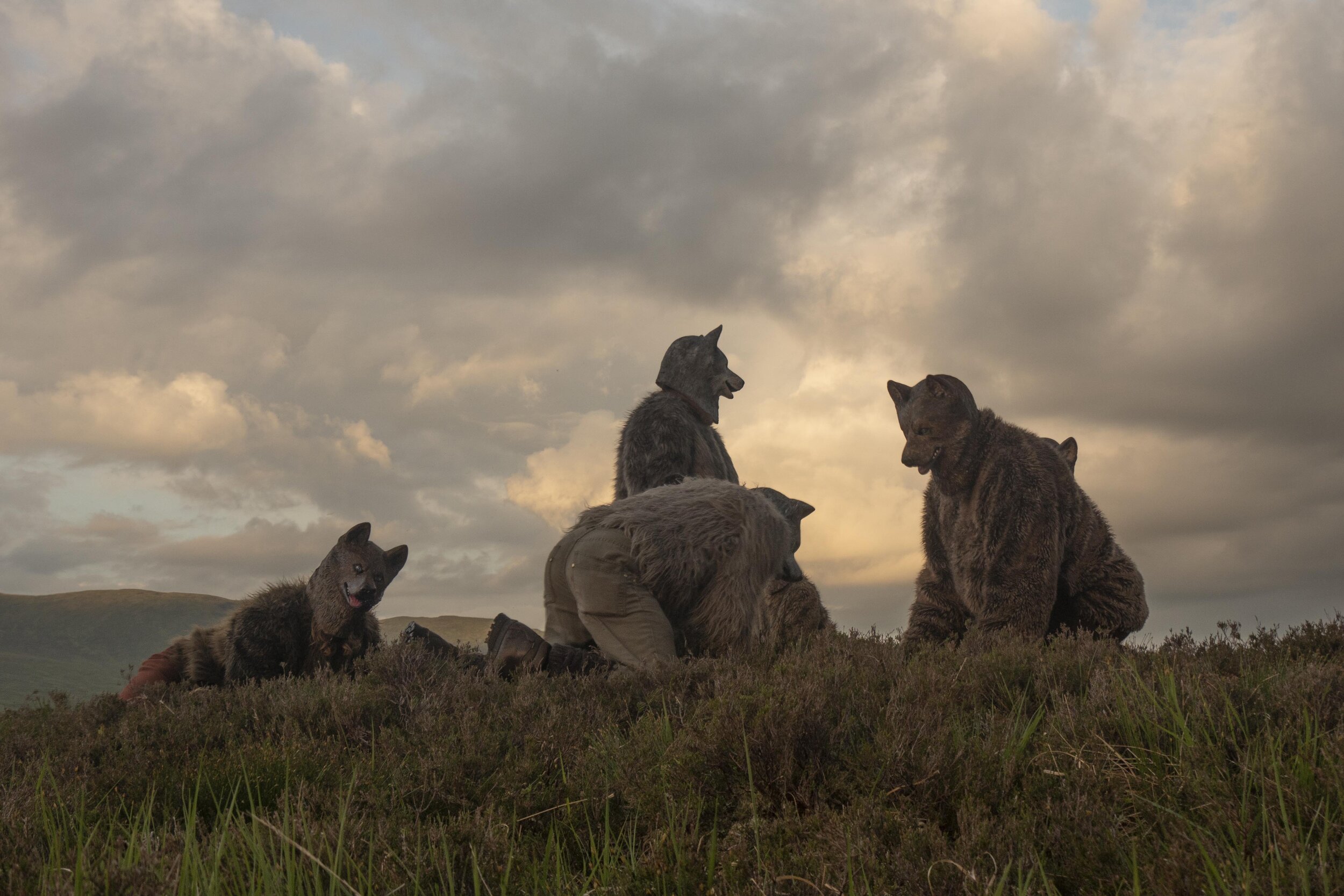
Uncivilised Filmmaking
Exploring the role of storytelling through film in an age of endings.
“The end of the world as we know it is not the end of the world full stop.”
In these shifting times of political, social and ecological unravelling, I often ask myself questions about the world that I’ve been born into, as I’m sure many of us do. When the so-called ‘progress’ of civilisation is destroying the planet and its ecosystems, how do we ‘uncivilise’ ourselves and remember that we aren’t separate to nature? What are the overarching stories and myths that we live by but which aren’t serving us anymore? How do we live with so much uncertainty and yet cultivate hope for the future, which so often seems unremittingly bleak?
I was initially drawn to the Dark Mountain Project’s beautifully written and presented bi-annual printed anthologies, as I thought that the words and art that I found within their pages reflected our reality with refreshing honesty. It felt like a homecoming. For me, Dark Mountain isn’t about wallowing in despair in the face of the climate crisis, but holding on to the aspects of our culture which are still worth celebrating. It’s also about acknowledging and navigating grief in the wake of so much human-wrought environmental damage and the sixth mass extinction of non-human species. How can we re-connect with the planet, with place and with each other in ways that we’ve forgotten, or perhaps have yet to imagine or realise?
After attending a few Dark Mountain events and gatherings, I got involved with some other members of the collective in forming a performance troupe called the Kairos Collective. We performed interventions and happenings at various events, including Base Camp in Devon, The Night Breathes Us In (as part of Reading’s Festival of the Dark) and the launch for Dark Mountain Issue 14: Terra, at Sprint Mill in Cumbria.
More recently, I’ve taken on the nascent role of film editor for Dark Mountain, curating and facilitating online events and conversations which explore the potential of filmmaking to reflect and speak of our current age of radical change. If these conversations interest you too, I invite you to view a few of those initial explorations below.
You can read the written contributions that I’ve made to Dark Mountain’s online publication here.
For more recorded online events, please visit the Dark Mountain Vimeo page.
If you’d like to get in touch with me about anything which resonates regarding Dark Mountain and filmmaking, you can contact me at jon.adrandall@gmail.com
Uncivilised Filmmaking: An Online Conversation
This is a recording of a live talk and discussion on Zoom from February 2021.
Around the Winter Solstice of 2020, Dark Mountain were invited by Sjón Anthropological Film Festival in Denmark to collaborate in offering an online event which responded to the festival’s theme of solastalgia. Coined by environmental philosopher Glenn Albrecht, “solastalgia is the distress that is produced by environmental change impacting on people while they are directly connected to their home environment.”
I delivered a talk which introduced the idea of ‘uncivilised’ filmmaking by way of exploring the possibilities of darkness as a metaphor for the huge uncertainties and anxieties that we face in response to a rapidly shifting world. I was interested in asking the question: how can film offer opportunities for us to sharpen our senses, attune to the rhythms of the planet and pay attention to the nonhuman world?
The Picture Show at the End of the World
A recording of an online screening event, which took place on Fri 6th November 2020.
Welcome in the beginning of winter with a Dark Mountain-slanted light show. I was delighted to host the online screening event, which showcases some of the submissions we received in response to a call-out for uncivilised films earlier in the year.
A selection of short films are screened over the course of an hour, featuring: visual poetry; a cinematic meditation on the Cairngorms; surreal eco-horror animation; a collaborative ritual between artist and tree; voices on what it means to re-indigenise and a multispecies ethnographic collaboration between humans and donkeys.
The films are followed by a post-screening conversation with some of the filmmakers, as well as questions and reflections from the audience.
Rannoch Wolves
A short film I made in collaboration with the Kairos Collective. The Rannoch Wolf Pack grew out of an annual solo performance by Dougie Strang, a storyteller and performance maker who has been at the heart of the Dark Mountain Project from its early years.
Under the EU Habitat Directive, the UK is obliged to consider the reintroduction of once native species. Wolves were present in Scotland up until the 18th Century. If they are ever to be reintroduced, Rannoch Moor has been proposed as a good place to start. Rannoch Wolves is a playful 'found performance', using fake fur coats and handpainted masks, made for the benefit of passengers on ScotRail's West Highland Line. It asks the question: why wolves, why there?
Read more on the Dark Mountain website.
Image credit: Caroline Ross 2021
Wild Twins Video Lessons
This Spring, I’ve been collaborating with Caroline Ross, an artist who is closely connected to Dark Mountain and creates art using ancient and natural materials. Caro co-created the unique art and writing course, Wild Twins, with Paul Kingsnorth, which is currently running online. It’s been an utter joy to edit Caro’s video lessons for the course this year and we hope to continue working together over the coming seasons.
Check out the info on Wild Twins here.



